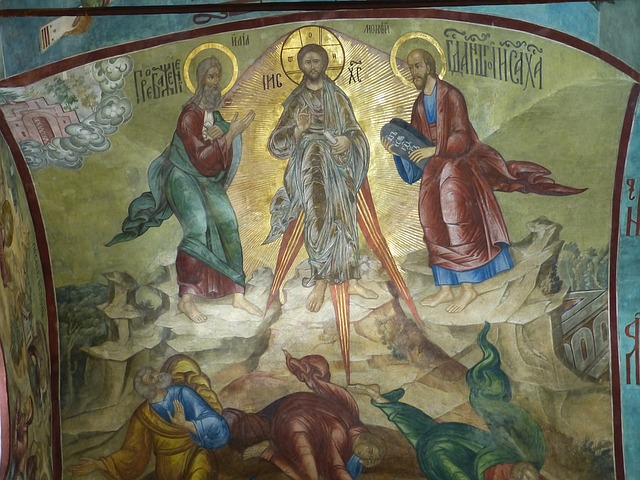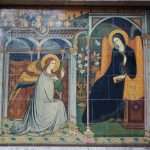This article originally appeared in the July/August 2017 issue of Faith Magazine. It is based on the Gospel reading for Aug. 6, the Transfiguration of the Lord.
Jesus took Peter, James and his brother, John, and led them up a high mountain by themselves. And he was transfigured before them; his face shone like the sun and his clothes became white as light. And behold, Moses and Elijah appeared to them, conversing with him. Then Peter said to Jesus in reply, “Lord, it is good that we are here. If you wish, I will make three tents here, one for you, one for Moses, and one for Elijah.” While he was still speaking, behold, a bright cloud cast a shadow over them, then from the cloud came a voice that said, “This is my beloved Son, with whom I am well pleased; listen to him.” When the disciples heard this, they fell prostrate and were very much afraid. But Jesus came and touched them, saying, “Rise, and do not be afraid.” And when the disciples raised their eyes, they saw no one else but Jesus alone. As they were coming down from the mountain, Jesus charged them, “Do not tell the vision to anyone until the Son of Man has been raised from the dead.” (Mt 17:1-9)
This passage from Scripture is one of my favorite sections to read. Why? Because it tells us so much about God’s care for his disciples and, as a result, it speaks powerfully to what awaits us when we leave this earthly life and enter eternal life—fullness of life, true and lasting life forever. Even that is hard to grasp because we are finite. So, let’s “walk” through this scene. Jesus takes Peter, James and John up a high mountain, and he is transfigured before them. What does that mean? As far as the disciples could tolerate, Jesus shows himself in his majesty and glory of God the Son.
Then something further happens: Jesus is seen conversing with Moses and Elijah. Peter speaks for them all when he asks the Lord if he could build three tents—dwelling places—for the majesty and splendor of Jesus and the reflection of that glory in Moses and Elijah. No dwelling could ever contain God’s glory, but Peter is trying to find a way, with his human resources, to honor them.
Continue reading here.






